
About the Employment Promotion Programme (EPP)
The Employment Promotion Programme (EPP) is aimed at providing an enabling policy environment in South Africa for the expansion in aggregate employment. Its specific purpose is to remove systemic constraints to employment growth in order to achieve a reduction of the percentage of people unemployed in South Africa in line with the target set by the South African Government.
The EPP aims to remove systemic constraints to job creation through knowledge and intelligence gathering, labour market organisational capacity building, piloting of innovative interventions, and the promotion of social dialogue. The DPRU has been the implementing agent of EPP since 2005, with the University of Cape Town (UCT) serving as the legal entity. It is currently in its fourth phase, and potential for a Phase V is still being explored.
Some of the identified systemic constraints to job creation include scarce skills development, the labour and non-labour market regulatory environment, labour market institutions, insufficient promotion of decent work opportunities, and the lack of promotion of growth and employment generating activities.
Key focus areas of the programme include:
- Measures to reduce priority skills gaps are identified and implemented;
- Micro and macro regulations and processes to be more conducive to employment creation;
- Reviewing and formulating strategies addressing precarious work conditions and contributing to decent work opportunities;
- To review and reflect on the quality of growth and employment generating strategies;
- Strengthening capacity and institutions for social dialogue and partnerships for employment creation.
Projects funded by EPP have a strong link to positively impacting employment in South Africa.
The EPP’s level of efficiency is partly a function of the way the Reference Group operates. All decision-making is carried out by a high-level tripartite Reference Group comprising senior officials within Government, COSATU and BUSA. All Terms of Reference, proposals, and final reports for EPP-supported programmes/projects are approved by the Group on the basis of full consensus. The high-level Reference Group, with their expertise, and specialist knowledge of policy challenges and job creation ideas, in many senses serves as EPP’s ‘engine room’. The DPRU, as EPP project manager, acts as an intermediary, overseeing the commission of research and disbursement of funds.
While the Reference Group formally meets on a quarterly basis, the majority of consultation and decision-making is done electronically. This electronic consultation and decision-making, in part, ensures relatively short turn-around times throughout the process. The reaction times associated with commissioning research and activating other policy processes is much shorter through an intervention such as the EPP than through other more formal processes. In the absence of EPP funding, these types of projects will have to be supported through the bureaucratic process, with the associated delays and budget constraints.
As a non-governmental institution, EPP provides support necessary to remove constraints in the economy and pursue micro-policy reforms. EPP acts as an effective intermediary to unlock delivery from policy agents, occupying a space between the South African Government and other policy agents.
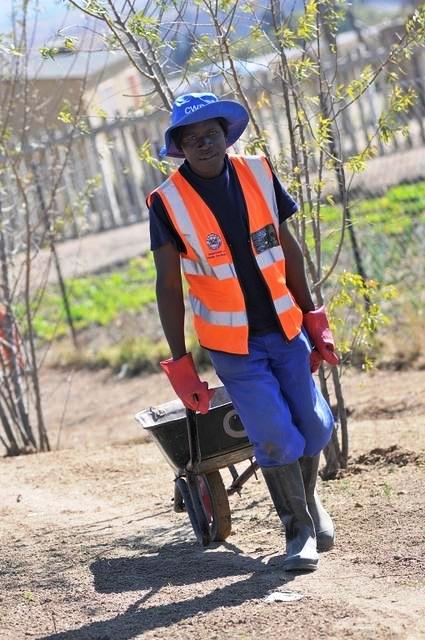
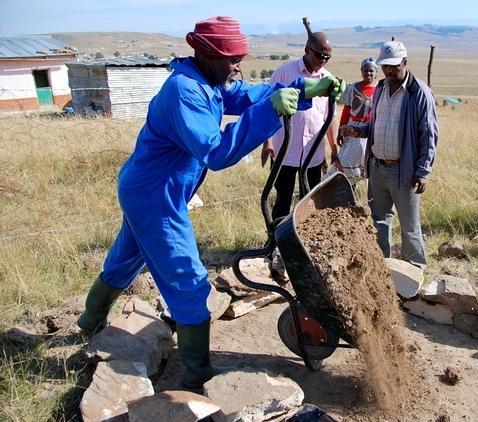
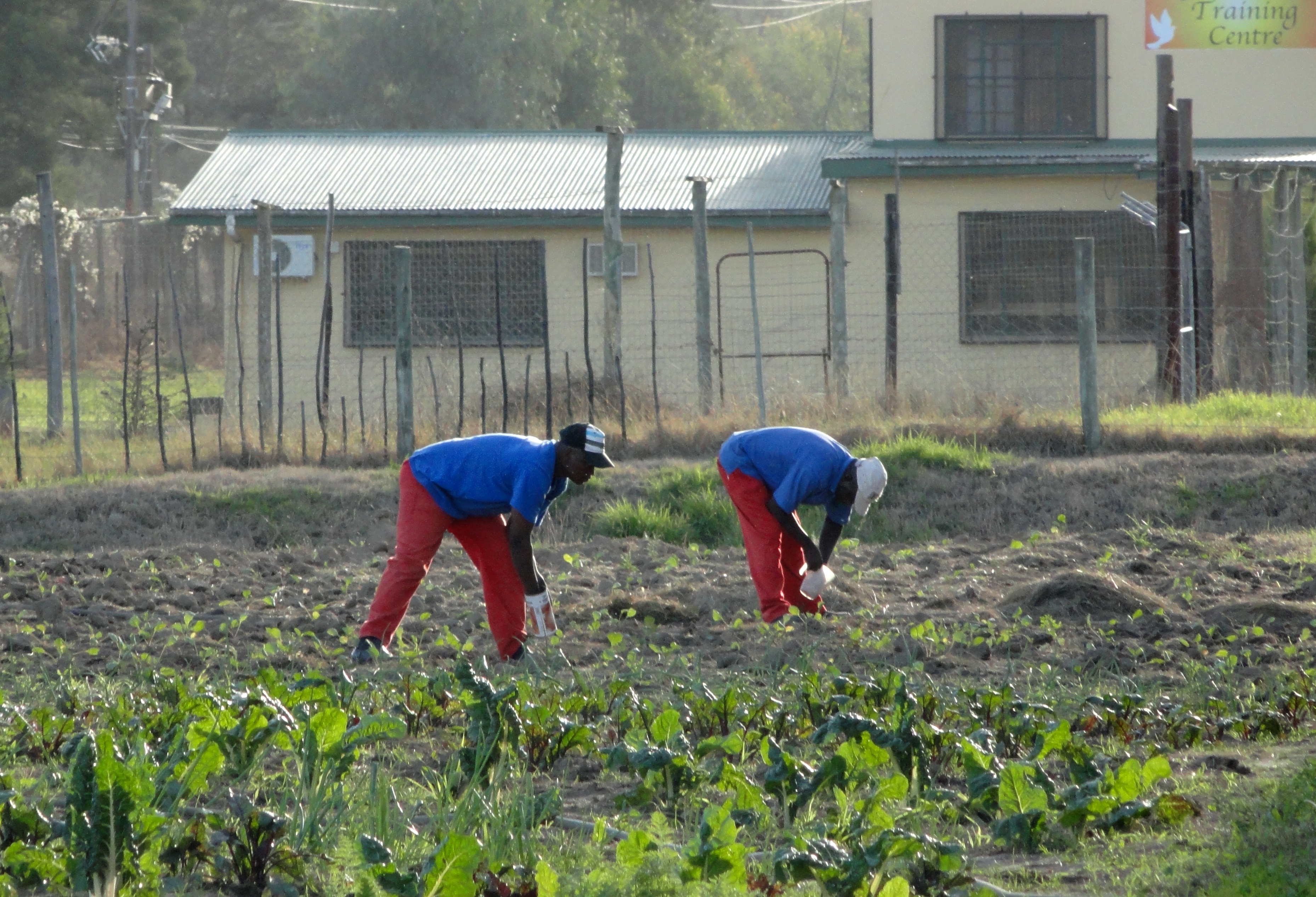

BACKGROUND
In 2005, the DPRU was awarded a two year grant from the UK Government (UK Department for International Development, DFID) to implement its South African initiative, the EPP. Following the successful implementation of the first and second phases of the programme, the grant was extended by a further three years in April 2010.
The key change between Phases I and II of the EPP was a shift from research and policy development to policy implementation. Global and local developments during 2008/2009, however, fundamentally altered the context in which the third phase of the EPP operated. The thematic areas of focus were revised to take account of the impact of the global economic downturn and a new focus on the nature of economic policy interventions emerged from the shift in the political environment. For more information on EPP Phase III click here.
EPP in the News:
Prevention of violence and crime is an important benefit of CWP, 15 October 2018. Address (pre-recorded) by Mr. Andries Nel, MP, Deputy Minister for Co-operative Governance and Traditional Affairs, at the Centre for the Study of Violence and Reconciliation (CSVR) Policy Conference on the Role of Public Employment Programmes in Facilitating Social and Economic Development in Communities.
South Africa: Ministers are aware of responsibility to Parliament, 30 May 2012. "…Turning to job creation, Motlanthe said the government, in all its various programmes, needed to target youth. He said the Community Works Programme aimed to create one million work opportunities by 2014, while the Expanded Public Works Programme (EPWP) planned to create two million work opportunities, while the National Treasury's Jobs Funds created further jobs. The government will also continue to provide support to small businesses and smallholder farmers and providing vocational and continuing education and training would target between 300 000 and 800 000 students. He said the differences expressed by social partners to the youth wage subsidy should not deter South Africans from the main objective of lowering the costs and time of entry into the labour market. "We must together with all social partners, work out mechanisms to prevent, detect and address abuse when it does occur," he said.”
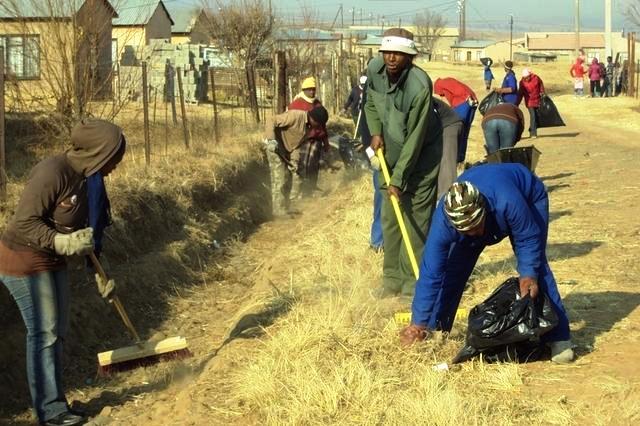
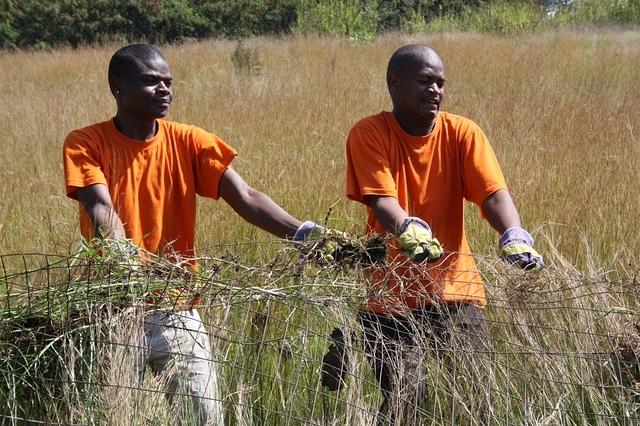
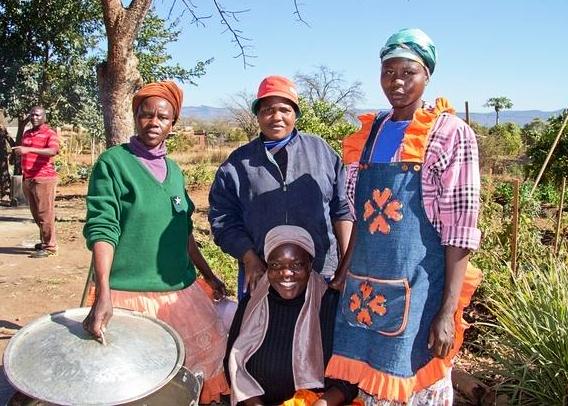
Photo credits: EPP/CWP/EPWP
